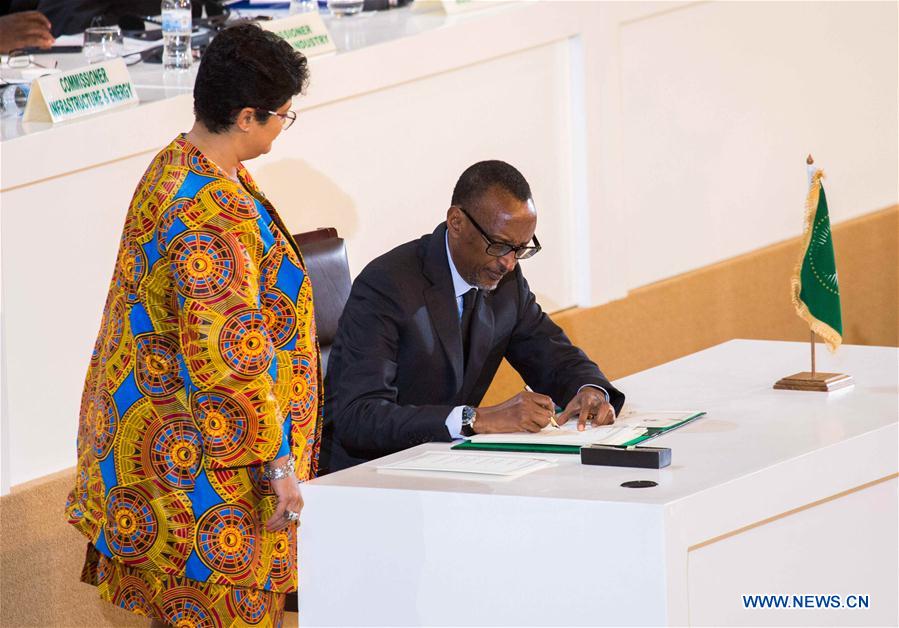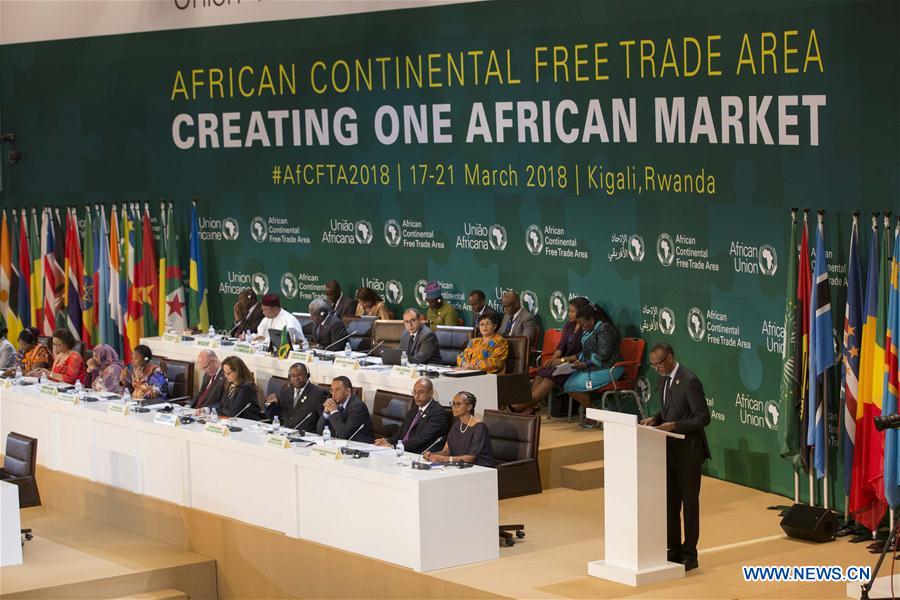African countries in trade tie-up


The signing of an agreement to launch the African Continental Free Trade Area on Wednesday will not only boost intra-African trade but also increase mutual exchanges with international partners like China as well as improve competitiveness of the continent's products.
Signed at an extraordinary summit of the African Union held in Kigali, Rwanda's capital, the AfCFTA will bring together 54 African countries with a combined population of more than 1 billion people and a combined gross domestic product of more than $3.4 trillion.
The AfCFTA will also bring African economies together into a single large market by reducing tariffs, removing trade barriers, promoting intra-regional trade and investment development, and achieving free movement of goods, services, capital and labor.
According to David Kikaya, professor of International Relations at the United States International University, the launch of AfCFTA is highly significant because it will consolidate trade between Africa and international partners.

It will specifically strengthen trade between Africa and China, the largest continent's trade partner, deepening the relationship between the two parties.
"It will also streamline trade so that both Chinese and African traders would identify existing gaps and opportunities that exists and find out whether they can be sealed by certain trading patterns," he said.
Through the agreement, Kikaya said Chinese and African traders will be able to identify opportunities which are not exploited by respective countries according to their needs and take advantage of them.
According to Sikhumbuzo Zondi, a research assistant at the Institute for Global Dialogue associated with the University of South Africa, the continent will now be in a better position to negotiate the terms of trade and offer much more diversified export goods to international markets.
"Currently, Africa mostly trades in raw materials with China, for instance, and imports of manufactured goods from Beijing, thus since the AfCFTA's developmental approach is solidly grounded in Africa's political economy realities and development challenges, then increased local trade would boost the continent's export power and diversification," he said.
According to Zondi, the agreement is anticipated to raise intra-African trade, which is still lower than trade between African countries and the outside world, by 55 percent by 2022. Africa's exports to the rest of the world is also projected to grow by 6 percent.

































